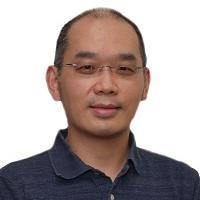Articles
FP&A Needs to Step Out of Accounting’s Shadow
- By Bryan Lapidus, FPAC
- Published: 4/28/2021

Last year, AFP announced the formation of its APAC FP&A Advisory Council (FPAAC). The networking and advisory group meets three to four times a year to discuss best practices, common challenges and innovative initiatives in the Asia-Pacific region. We’ll be profiling individual members of the council every month. This month we spoke with Danny Shiu, FPAC, CTP, MOS.
AFP: Let’s begin with how you got into FP&A.
Shiu: When I graduated in 2000, many college graduates were crazy about technology start-ups. After interviewing with a couple of start-ups – some of them didn’t even have an office yet – I felt that, if I wanted to gain solid experience, a well-established corporation was the way to go.
Back then, it wasn’t easy for a new graduate to get a job with an established company. I had an “in” through a friend of a friend, who gave my résumé to the finance systems manager of a San Francisco-based food production and distribution company that had been around for over 100 years. In the job interview, the department vice president asked me if I minded reporting to two managers simultaneously, because they were short-staffed. Recalling what my grandmother always told me, “Opportunity doesn't knock twice,” I accepted the offer on the spot. Following a background check, on Aug. 23, 2000, three months after I graduated, I became an associate financial analyst with Del Monte Foods and officially got into FP&A.
AFP: What are your goals for being on AFP's Asia Pacific Advisory Council?
Shiu: Since relocating to Asia in 2007, I’ve been surprised to find that many Asian companies, primarily those with local establishments only, still rely on their accounting departments to handle FP&A and treasury functions. As a corporate finance professional who holds the FPAC and CTP certifications, I was delighted to see that AFP and the regional managing director, Himashi Soriano, have been actively promoting these two credentials, and have educated treasury and finance professionals across the APAC region.
companies, primarily those with local establishments only, still rely on their accounting departments to handle FP&A and treasury functions. As a corporate finance professional who holds the FPAC and CTP certifications, I was delighted to see that AFP and the regional managing director, Himashi Soriano, have been actively promoting these two credentials, and have educated treasury and finance professionals across the APAC region.
Having the chance to serve on AFP’s APAC Advisory Council, I hope that I can: 1) share with AFP my 20+ years of FP&A experience in the consumer goods manufacturing industry; 2) help connect AFP with local governments and the training or professional organizations of Hong Kong and Macau, where I reside and from which many business major graduates every year; and 3) provide advice to AFP if one day they decide to bring the FPAC credential to China.
See how becoming certified in FP&A can advance your career and validate your unique skillset. Download the FPAC brochure here.
AFP: What do you think the FP&A profession needs in the short term? In the long term?
Shiu: In the short term, FP&A professionals need more visibility in the business world by showing off our unique professional standards and differentiating our role from management accounting. Participating and supporting FP&A professional bodies like AFP can increase our exposure and help people understand our distinctiveness. For examples, we focus more on forecasting and planning than looking at actuals, which are provided by accounting. We explain to management and investors “why it happened” and the impact to company’s short term and long-term financial targets. We also work with different departments every day, coordinating and consolidating information, like an information clearing house.
FP&A and treasury, which both fall under the CFO roof, usually need to solve issues together. With this understanding, I recommend that FP&A professionals get their CTP certification. Having knowledge of treasury can not only solidify FP&A as an important pillar in today’s business decision-making process, but also prepare us to become the future leaders of the CFO organization.
In the long term, I believe FP&A professionals can play a more important role in business fraud prevention and detection. Just look at two of the biggest business scandals in American history: the Enron scandal was about inflating revenue, and the WorldCom scandal was uncovered by a financial analyst. These are both in the FP&A arena. It’s important for our profession to gain the skills needed to become more practiced at fraud prevention and detection.
AFP: You have experience putting financial models in place correctly: What is different about doing this now, and how will this continue to change going forward?
Shiu: First, I want to say that, while technology gives us access to more data, the spreadsheet is still an important platform for financial modeling. Technology is just like the refrigerator in our kitchen that has become more sophisticated and bigger so it can hold more and greater varieties of food. And yet we – just like the five generations before us – still use a pot to cook our food, turning it into meals prepared the way we want. I have yet to have a workday where I don’t need to use a spreadsheet. Every FP&A professional should have decent spreadsheet skills.
Today, I see more and more companies trying to move from spreadsheets to cloud solutions, such as “Excel-killer” enterprise management tools. At the base level, they provide useful tools like the dashboards and report automation. If (or when) FP&A professionals gain the ability to manipulate these new cloud solutions like a spreadsheet, then at that time I can really imagine myself putting financial models outside of a spreadsheet. Until then, there is a bottleneck where simple changes such as format updates require a ticket with the company’s help desk or the finance’s power user, then wait for support. The flexibility of a spreadsheet is still unbeatable.
Visit AFP’s Asia-Pacific FP&A page for more resources, and register for the complementary event, AFP FinNext Asia, created exclusively for FP&A professionals and taking place virtually 15-17 June 2021.
Copyright © 2024 Association for Financial Professionals, Inc.
All rights reserved.

